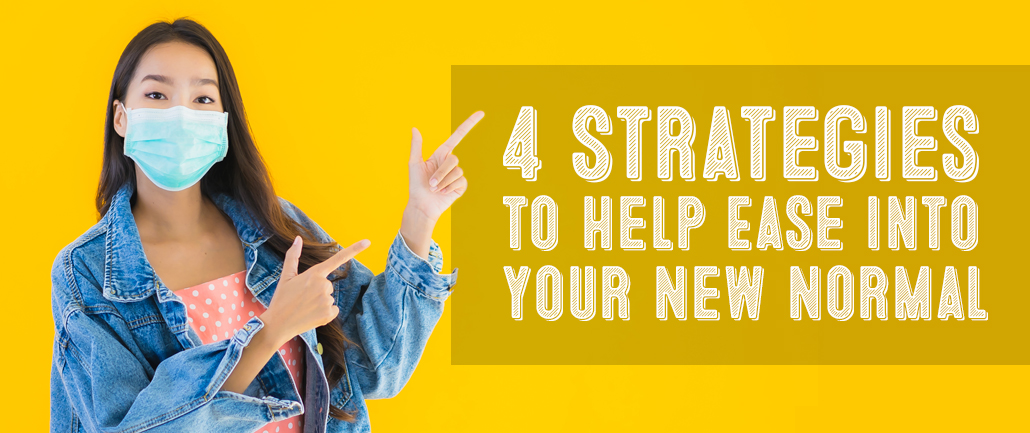
Help Ease Into Your New Normal
We are all feeling a bit uncertain about what life will look like once we “re-open.” Some of us can’t wait to return to our typical daily routine of leaving the house in the morning for work or school, and then returning home in the evening. But there are also lots of us who are dreading the end of the stay-at-home orders because, to be truthful, we really like staying at home!
Feeling anxious about “returning” is a completely normal response to change. Most people like to know what is going to happen next and established routines help us to feel safe. So it is natural to feel unsure about what life post-quarantine will look like.
But we will have to eventually venture out again. Here are four strategies that may help you ease into your new normal:
1. Go slowly! – For some people, being told to stay at home has had some unexpected benefits. You and your family may have been lucky and have not faced health challenges, so staying home has been enjoyable.. The stay-at-home orders gave us permission to not feel pressured to be socially active, to not have to face the stress of being in a classroom, or to have to engage with strangers while going about our lives.
A slow, gradual return to your pre-Covid life may help reduce the stress.If you haven’t been leaving your house at all, maybe take a walk around your neighborhood. Once you are feeling more comfortable doing so, invite a friend along for the walk. If you both are wearing masks and keeping 6 feet apart, a walk outdoors with a friend is a great first step!
2. Make a plan – Creating a plan for your mental and physical health will help you to feel more in control. Make a commitment to meet with your therapist or Life Skills Coach weekly to talk about your return to life outside of the house. Challenge yourself to eat healthy meals, exercise, and get plenty of rest.
3. Do what feels right for you – You can decide how you want to spend your time and energy. You don’t have to be busy all the time if you don’t want to! You can take a lighter academic load this fall if that will help reduce your anxiety about returning to your college campus or take a part-time job to ease back into the work world.
4. Use your healthy coping skills – There may be challenges that you may not be able to solve. But healthy coping strategies can help you to face these problems . Doing yoga, meditating, talking with your Life Skills Coach, or going for a walk with a friend are all activities that will help you to feel your best. Coping skills help you to regulate your emotions when you are feeling overwhelmed.
No one can say for sure what life in the future will look like, but it will probably take some getting used to. The main thing is to return to regular life at your own pace and be kind to yourself. Tell yourself you are doing the best you can and that is just fine!
Jeri Rochman, JD, MS
Jeri Rochman, JD, MS, is the Advance LA Director of Community Outreach, a Life Skills Coach, National Board Certified Counselor and Certified Parent Educator. Interested in learning more about Advance LA’s services?